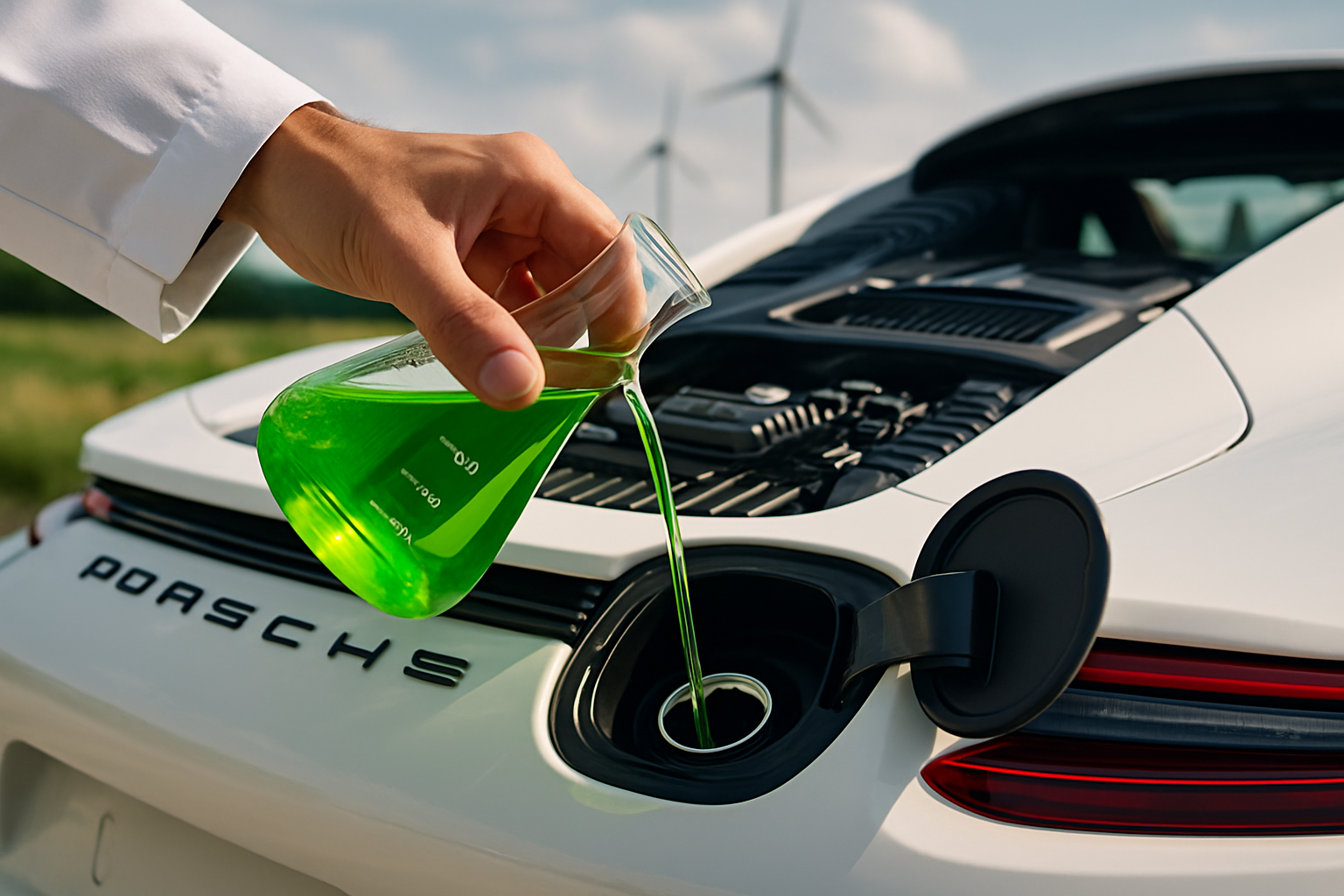Synthetic Fuel: The Unconventional Path to Sustainable Motoring
The roar of a high-performance engine, the sleek lines of a classic sports car, the thrill of the open road - these are experiences that car enthusiasts fear losing in the rush towards electrification. But what if there was a way to preserve the essence of internal combustion while drastically reducing its environmental impact? Enter synthetic fuel, a groundbreaking alternative that's turning heads in the automotive world.

The Chemistry Behind the Revolution
At its core, synthetic fuel is a hydrocarbon fuel created through artificial processes, rather than refined from petroleum. The concept dates back to the early 20th century, with German chemists Franz Fischer and Hans Tropsch developing a method to convert coal into liquid fuel during World War II. Today’s synthetic fuels, however, are far more advanced and environmentally friendly.
Modern synthetic fuel production begins with renewable electricity, which powers the electrolysis of water to create hydrogen. This hydrogen is then combined with captured carbon dioxide in a process known as the Fischer-Tropsch synthesis, resulting in a liquid hydrocarbon fuel that’s chemically identical to conventional gasoline or diesel.
From Laboratory to Racetrack
While synthetic fuel may sound like a far-off dream, it’s already making waves in the world of motorsports. In 2022, Porsche began testing synthetic fuel in its high-performance race cars, demonstrating that this alternative fuel can meet the demanding requirements of competitive racing. The German automaker has even invested in a pilot plant in Chile, aiming to produce 130,000 liters of synthetic fuel annually by 2022.
Other manufacturers are taking notice. Formula 1, the pinnacle of motorsport, has announced plans to introduce synthetic fuels by 2026, seeing them as a way to maintain the sport’s high-octane excitement while reducing its carbon footprint. This real-world testing ground is crucial for perfecting the technology and proving its viability for everyday use.
The Environmental Equation
The environmental benefits of synthetic fuel are significant. Unlike conventional fossil fuels, which release carbon that has been locked away for millions of years, synthetic fuels only emit the carbon that was used in their creation - carbon that was already in the atmosphere. This creates a closed loop, theoretically allowing for carbon-neutral operation of internal combustion engines.
However, critics argue that the energy-intensive production process of synthetic fuels makes them less efficient than direct electrification. The counter-argument is that synthetic fuels can utilize existing infrastructure and vehicles, potentially offering a faster route to reducing emissions in the short term, especially in sectors where electrification is challenging, such as aviation and long-haul trucking.
Challenges and Opportunities
Despite its promise, synthetic fuel faces several hurdles on its path to widespread adoption. The most significant is cost - currently, synthetic fuel is considerably more expensive to produce than conventional gasoline. However, as production scales up and becomes more efficient, experts predict that prices could become competitive within the next decade.
Another challenge is energy efficiency. The process of creating synthetic fuel is less efficient than directly using electricity in battery-powered vehicles. However, proponents argue that this efficiency loss is offset by the advantages of using existing infrastructure and the ability to store and transport energy more easily than with batteries.
The Road Ahead
As we stand at the crossroads of automotive history, synthetic fuel represents a fascinating alternative path. It offers the potential to preserve the cultural and emotional connections we have with internal combustion engines while dramatically reducing their environmental impact. For classic car enthusiasts, it could mean keeping beloved vehicles on the road without guilt. For developing nations, it could provide a way to reduce emissions without the massive infrastructure investments required for widespread electrification.
The future of synthetic fuel is still uncertain, but its potential is undeniable. As research continues and production scales up, we may find ourselves entering a new era of sustainable motoring - one where the rumble of an engine and the smell of exhaust are no longer at odds with environmental consciousness. The road ahead is long, but for those who love the art and science of the automobile, synthetic fuel offers a glimmer of hope for a future that doesn’t leave our passion in the rearview mirror.





